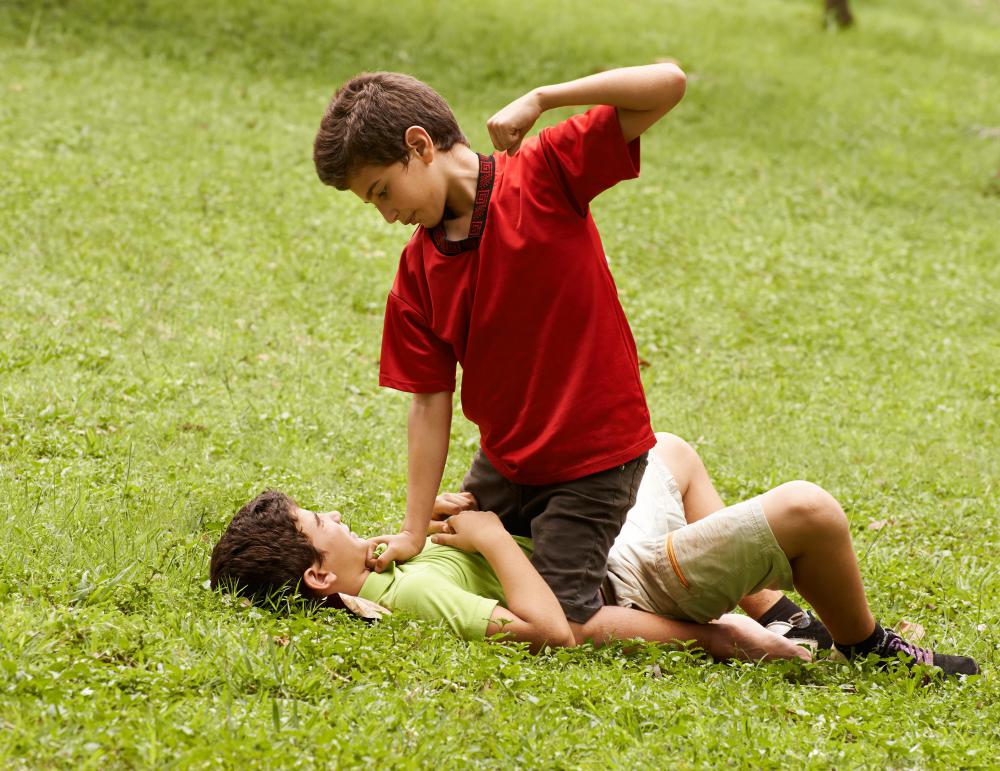At WiseGEEK, we're committed to delivering accurate, trustworthy information. Our expert-authored content is rigorously fact-checked and sourced from credible authorities. Discover how we uphold the highest standards in providing you with reliable knowledge.
What is Conduct Disorder?
In kids and teenagers, one mental illness that may occur is conduct disorder. This condition, which tends to occur with greater frequency in male children, is marked by a variety of behaviors that are destructive to self and others. Kids with this illness have great trouble at home and school because they may act out in a number of harmful ways, on a regular basis. This disorder is considered a true mental illness, and as such, mental health treatment poses the best means of a cure; cure is quite possible especially when treatment begins early, and kids that get help may have normal behavior as adults.
There are several types of behaviors symptomatic of conduct disorder, but it should be noted that one incidence of a bad behavior doesn’t necessarily point to this illness. Rather, repeated acts are likely. These acts could include aggression toward people or animals, acts of violence against property like setting fires or damage of other kinds, lack of respect toward home or school rules that is significant, and evidence of purposeful lying or deceit occurring regularly.

Children might develop this disorder in early childhood or it may emerge in the teenage years, and researchers have found that it frequently is present with other conditions. It could occur in child with attention deficit hyperactivity disorder, post-traumatic stress syndrome, and other mental illness like anxiety, depression, schizophrenia, or bipolar disorder. Clearly there are greater problems with two conditions occurring together, but it is not thought that one condition causes the other, and in many cases children have one of these related disorders without having conduct disorder.

Once recognized, and it may be hard to fail to notice conduct disorder due to severity of behavioral problems, beginning treatment is extremely important. This is not a treatment that can be skillfully addressed through drug therapy alone, though medication might be part of the solution. Therapy of a long-term nature is usually needed too, and may need to be undertaken on several levels. Parents will need to be involved in some of the therapeutic process so they can successfully work with a child with this condition, and the affected child or teen will require individual therapy, too.

Since this mental illness poses a potential risk to peers, its presence may need to be addressed in the educational environment. Children with this condition may be considered special education kids, and might attend alternative schools where better controls are in place to protect the child and his/her classmates. Homeschooling is another option, and as the child’s behavior improves, mainstreaming back to regular classes could be recommended.

Causes of this condition aren’t fully understood or explained, but scientists believe they’ve identified some potential causal factors. In certain studies, brain function of kids with conduct disorder has been evaluated, and areas of the brain that are most associated with expression of empathy appear to be less active. This may translate to disregard about consequences of actions or feelings of others, making it easier to act out with aggression in a variety of ways. It should be noted that that doesn’t necessarily mean therapy won’t work to treat this condition, but depth, length and early beginnings of intervention tend to correspond to greater success.
Without treatment, the prospect can be extremely grim for kids with conduct disorder. Some may develop as adults into sociopaths or psychopaths. It is thus extremely important that early intervention occur.
AS FEATURED ON:
AS FEATURED ON:


















Discuss this Article
Post your comments